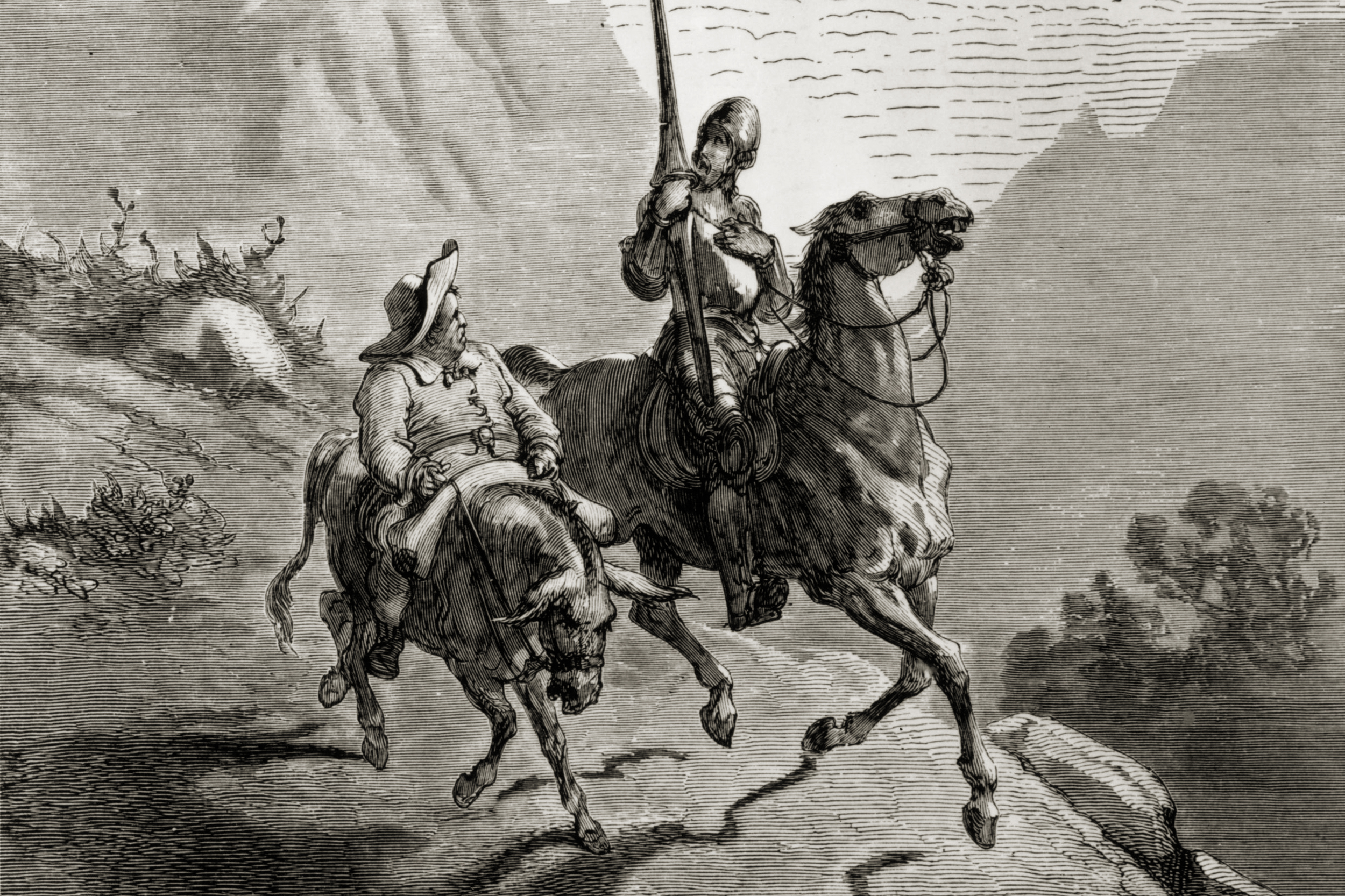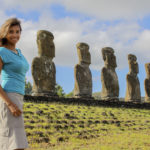Pascal once wrote that all mankind’s misfortunes spring from just one cause: ‘he does not know how to sit still in a room.’ I like that: it makes me less ashamed to admit that I am a poor traveler. Places interest me, but more and more often the mechanics of getting to them defeats me, especially that nightmare of the modern world, the inter-national airport. For this reason, the inner journeys that people make in their lives have absorbed me more than the outer ones. Therefore I follow Voltaire’s advice: when I want to travel, I turn to my library.
But of course if we all took this stance, human history would be fairly uneventful, if it existed at all, for history without travel is un-thinkable. First, humanity overspread the earth through the process of migration, forming communities and cultures that flourished for long periods in isolation from each other. Then later, through exploration and resettlement, this isolation was broken down, and the movement began towards the one world which we now inhabit. In this book, the tail end of the migration phase can be traced in a few early texts such as the Book of Exodus and the Aeneid. But by far the greater part of my book is concerned with the second phase, in which travel literature becomes a witness, and indeed an agent, in the gradual reintegration of mankind; it becomes a form of discourse through which one civilization thinks about another, and about itself.
The book’s perspective is Eurocentric, because the literature of international travel is predominantly European. Beginning in the ancient and classical world of the Eastern Mediterranean, the book moves west and north, until it becomes a survey of English travel writing. If this appears to be a convenient sleight of hand, it does at least reflect the historical reality that it was the western European nations who travelled to and observed the lands and peoples of America, Africa and Asia, and not the reverse. In this historical process, my book tries to identify successive paradigms of travel and travel literature: we have the literature of exploration, conquest, pilgrimage, science, commerce, romanticism, adventure, imperialism, and so on. Driven on by motives such as these, the English became good at setting up parallel worlds abroad, where they could study other ways of life, perhaps meddle with them, exploit them or laugh at them, but certainly write about them. An attitude of superiority was once endemic in a very great deal of travel writing, and travel literature has become implicated among the forces of colonialism. It is, however, the contention of this book that this has been gradually replaced over the last century by a new humility in the face of the foreign, encouraged by a growing discontent with western civilization. And even before the modern age, travel writing was the ideal vehicle for the humorist, the eccentric, the loner or the crackpot, who fitted into no easy political or intellectual scheme, whose passion was to escape from his homeland and jaunt through the world as he pleased, with no fixed abode and no fixed identity.
Travel literature is a vast field, impossible to do justice to in a brief survey. Part of its difficulty is that its canon is not well defined. With the exception of a few monuments like Herodotus, Marco Polo, Columbus, Captain Cook, Darwin and so on, any selection will always be slightly arbitrary. How many significant diaries are there of journeys to Italy or voyages across the Pacific in the eighteenth century, and how many significant journeys in the Near East or India in the nineteenth? Important but neglected texts are always being rediscovered and old ones reassessed. In the modern period the flow of books becomes a cascade; we duck to avoid the torrent, and miss some treasures. Just after completing this book, I picked up Peter Levi’s The Hill of Kronos (1980), which I should have read before. Levi was a poet, an original and exciting one, and he also played at being a scholar — I don’t mean that patronizingly: he was a scholar, but a scholar of the imagination, not of the slow, patient, analytical intellect. These two passions came together in his subtle, sharp-edged memories of Greece. But what gives his book its real interest is his account of life under the military junta: here sadness, shame and tragedy darken his book, and darken the wonder of the Greek idyll he has built up: how could this horror break in on a world of poetry and scholarship? There must be hundreds of such travel memoirs, each with its own unexpected uniqueness, which happen not to become specially famous, but which are potentially part of the canon of major works
This is not a social history of travel, and I have not been drawn into discussing mass tourism and its destructive effects. But it’s hard to avoid seeing most modern travel as yet another aspect of consumerism, collecting destinations and experiences as we collect electronic gadgets, or cars or properties, while the more attractive parts of the earth disappear rapidly beneath airports, hotels, restaurants, theme-parks, holiday villages, ski stations and the like. But I don’t agree with the common view that so-called real travel writing has necessarily died with so-called real travel. In this environment, the worthwhile travel writer has to keep alive the idea of the inner journey, the transforming experience: he or she has to be our eyes and our conscience, reminding us of what is genuine amid so much that is worthless.
Literary critics have been greatly exercised to explain in theoretical terms what travel literature is, as if there must be a single transcendent principle valid for all travel texts. But why should there be? Do we know, in any final, universal sense, what poetry is, or drama, or the novel? Like all these genres, travel writing has taken different forms in different ages, forms which we can describe, but whose essential identity eludes final definition. A travel text is obviously some species of memoir, tied to specific geographical locations, whose aim is to reflect or capture the character of that location and its people. It is tied to reality, but it will inevitably be reshaped in the memory and in the imagination — anyone who writes a postcard home from abroad knows this. When the travel experience is set down on paper, the memoir becomes a theatre in which the writer plays a double part, as both spectator and actor: what is seen is seen through his eyes, but he is also a protagonist of the action. So the writer is not merely recording an experience, he is creating it.
If Pascal were sitting quietly in his room thinking, it would probably be about God and the universe. If he thought of travel at all, it would probably be to wonder if he would understand God and the universe any better if he were to travel abroad a little — which he never did. But that would be a tall order, wouldn’t it? That would be asking a great deal of travel literature, just as it would be asking a great deal of poetry, science, philosophy or any other genre. The history of travel literature is complicated: it touches intimately on the way that we in Europe have understood and dealt with the rest of the world. But I think its essence is its record of the ways in which we have tried to escape from our own world, and perhaps from ourselves, to set out on journeys of exploration, whether they result in adventure, poetry, comedy, transgression, wisdom, sadness, suffering or desolation. This sense of escape, surprise, discovery and transformation is the great strength of travel writing, and this is why it deserves a higher place in the pantheon of literature, even though we still cannot exactly say what it is. My hope is that some of this richness can be felt in this brief book.





